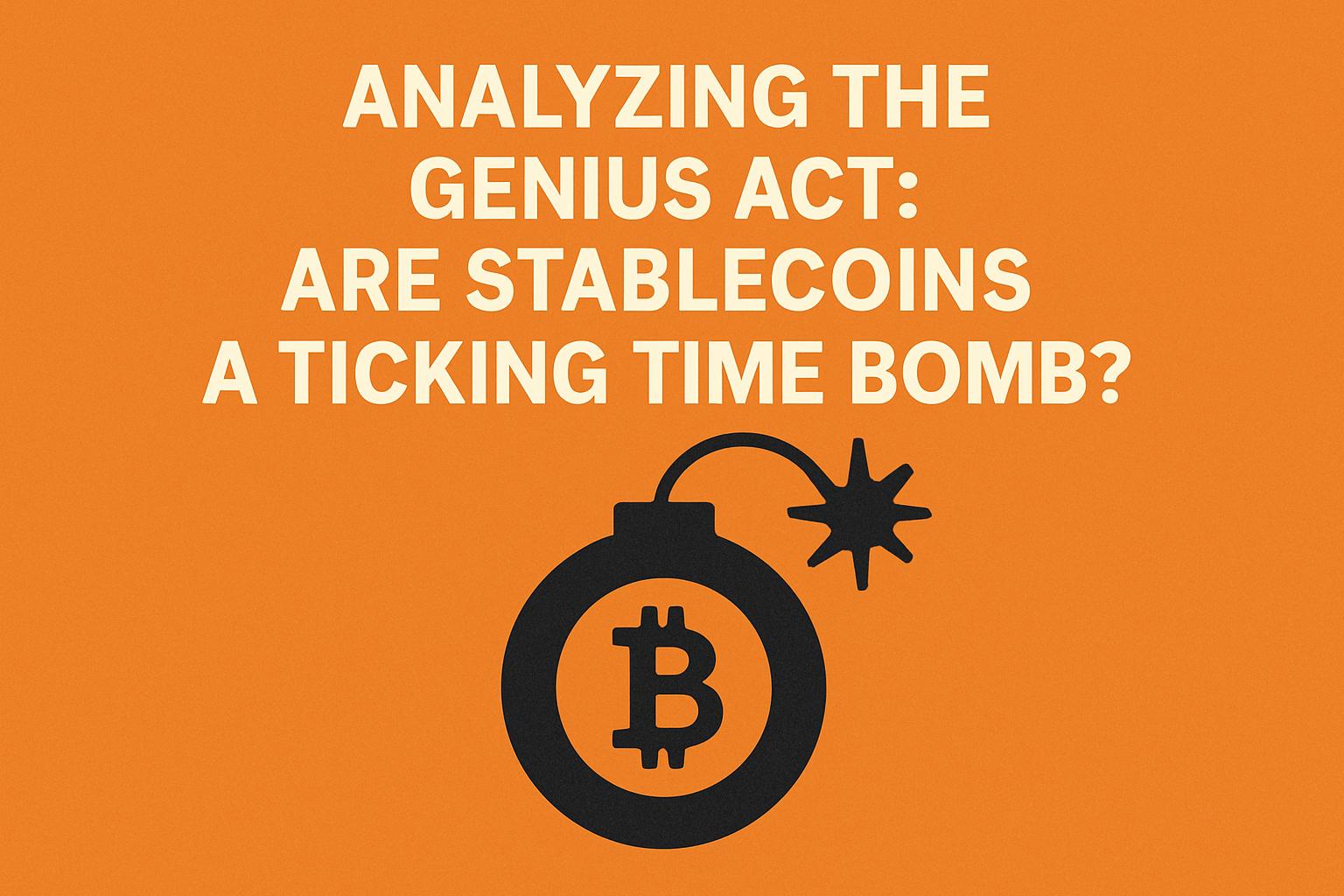In recent months, the debate over stablecoin regulation has gained momentum, with U.S. political figures and regulatory bodies raising alarms over potential financial risks. A recent flashpoint in this debate is the GENIUS Act, signed into law by former President Trump. While this legislation aims to establish a regulatory framework for stablecoins in the U.S., it has faced criticism for potentially not doing enough to safeguard the financial system.
Stablecoins Under the Microscope
Stablecoins, cryptocurrencies that are pegged to fiat currencies like the U.S. dollar, have become a significant component of the digital asset ecosystem. Their promise lies in providing the stability of fiat currency with the transactional ease and borderless nature of cryptocurrency. However, with this growth comes the necessity to regulate these digital assets properly.
The Emergence of the GENIUS Act
Signed into law in July 2025, the GENIUS Act represents the United States’ first comprehensive attempt to legislate stablecoins. The Act mandates that stablecoins must be fully backed by U.S. dollars or equivalent liquid assets, requires issuers with a market cap exceeding $50 billion to undergo annual audits, and sets specific guidelines for stablecoins issued outside the U.S.
While the Act appears robust on the surface, implementation details are still being worked out by various U.S. agencies, and certain loopholes have sparked concern.
Concerns from Elizabeth Warren and the Financial Community
Senator Elizabeth Warren, a vocal critic of the current crypto policies, has expressed significant concerns regarding the GENIUS Act. In a letter to Treasury Secretary Scott Bessent, Warren criticized the Act for being overly lenient and permissive, allowing banks operating in the crypto sector to potentially exploit regulatory gray areas.
She highlighted incidents involving the Trump family-backed stablecoin USD1, which has rapidly ascended to global prominence, and the recent mishap by Paxos, which accidentally minted an astronomical number of PYUSD tokens. These cases underscored what she views as political conflicts of interest and technical vulnerabilities that could undermine market confidence and financial stability.
The Call for Stronger Regulations
Warren has urged the Treasury Department to take decisive action to plug regulatory gaps, thus preventing the risk of financial instability and safeguarding consumer protection. Additionally, with bipartisan discussions underway to frame a more comprehensive crypto market structure bill, Warren sees an opportunity to fortify the existing legislative framework.
Potential Outcomes and Industry Implications
As the Federal Reserve voices its concerns, alongside Warren, the future of the GENIUS Act and stablecoin regulation remains uncertain. The financial sector and lawmakers continue to seek a balance between encouraging innovation and ensuring systemic stability.
The GENIUS Act may pave the way for more rigorous laws. However, without swift and decisive action, stablecoins risk becoming a pressure point for the broader financial market—an eventuality that Warren and others wish to avoid at all costs.
The evolving regulatory landscape is likely to mold the trajectory of stablecoins, guiding them either towards widespread adoption under strict supervision or confining them within stricter boundaries to prevent financial upheaval.

![[News] Bitcoin at a Turning Point? 10x Research Signals a Bullish Macro Shift Ahead](https://cryptoexplores.com/wp-content/uploads/2025/06/new20250616.jpg)
![[News] Binance Lists $HOME, the Gas-Free, Bridge-Free All-in-One DeFi App](https://cryptoexplores.com/wp-content/uploads/2025/06/news20250617.jpg)